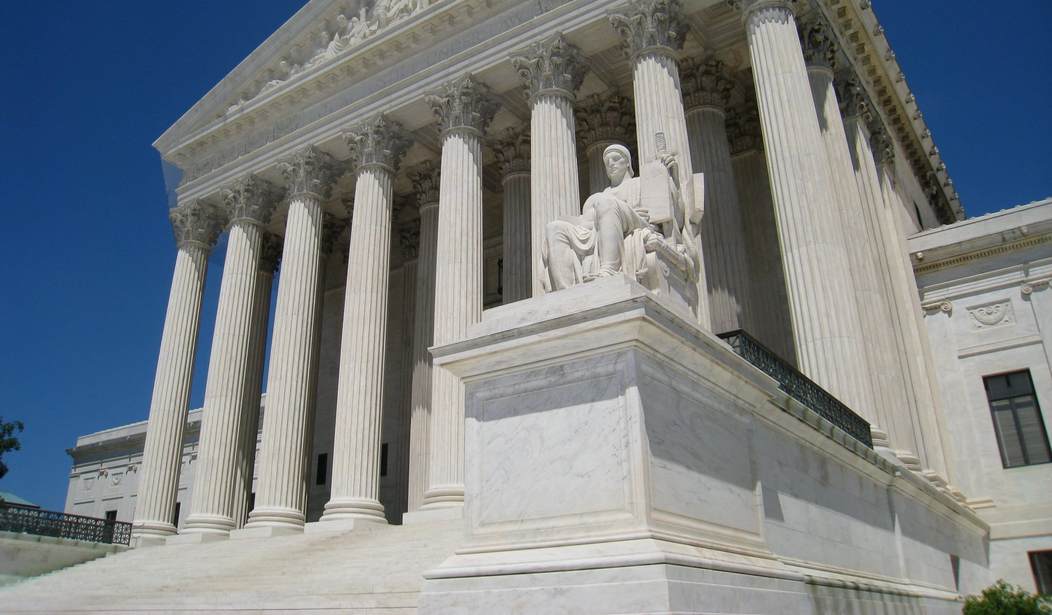On Monday, the U.S. Supreme Court dismissed two challenges to gerrymandering in Maryland and Wisconsin. The court did not make a conclusive ruling about the constitutionality of gerrymandering, but it did strike down partisan complaints that state legislatures had violated basic constitutional rights by redrawing congressional districts to favor the party in power.
In Gill v. Whitford, Democrats in Wisconsin challenged a new congressional map drawn by Republicans in the state legislature. In Benisek v. Lamone, Republicans in Maryland challenged a congressional map drawn by Democrats in the state legislature. In Gill, the court effectively unanimously struck down the challenge, while in Benisek, it upheld the ruling of the district court in denying a preliminary injunction to block the new redistricting.
The court ruled that the individuals in the Wisconsin case did not have standing to challenge the redistricting on the grounds of individual rights. “It is a case about group political interests, not individual legal rights,” Chief Justice John Roberts wrote in the majority opinion, in which Justices Anthony Kennedy, Ruth Bader Ginsburg, Stephen Breyer, Samuel Alito, Sonia Sotomayor, and Elena Kagan joined.
“This Court is not responsible for vindicating generalized partisan preferences,” Roberts declared. “The Court’s constitutionally prescribed role is to vindicate the individual rights of the people appearing before it. We therefore remand the case to the District Court so that the plaintiffs may have an opportunity to prove concrete and particularized injuries using evidence — unlike the bulk of the evidence presented thus far — that would tend to demonstrate a burden on their individual votes.”
Roberts refused to issue a final ruling on the “merits of the plaintiff’s case,” instead reassigning the case to the district court in Wisconsin that originally heard it. “We express no view on the merits of the plaintiffs’ case. We caution, however, that ‘standing is not dispensed in gross’: A plaintiff ’s remedy must be tailored to redress the plaintiff ’s particular injury,” he wrote.
In Benisek, the court ruled that a preliminary injunction against the new Maryland redistricting rules would have violated the public interest, and so it upheld the relevant district court’s decision to deny the requested injunction.
“The court reasonably could have concluded that a preliminary injunction would have been against the public interest, as an injunction might have worked a needlessly ‘chaotic and disruptive effect upon the electoral process,'” the court wrote.
“While I am disappointed that the Supreme Court has chosen not to decide on the merits of extreme partisan gerrymandering for now, it is not the end of the war for fair districts. It is a call to action,” former California Governor Arnold Schwarzenegger tweeted.
While I am disappointed that the Supreme Court has chosen not to decide on the merits of extreme partisan gerrymandering for now, it is not the end of the war for fair districts. It is a call to action. FULL STATEMENT: https://t.co/hez13PtONc
— Arnold (@Schwarzenegger) June 18, 2018
Tom Perez, chair of the Democratic National Committee (DNC), took to The Hill to pledge that “if the Supreme Court won’t protect voting rights, Democrats will.” He accused Republicans of gerrymandering districts in order to prevent some voters from making their voices heard. The Maryland case gives the lie to Perez’s suggestion that this is a uniquely Republican problem.
Gerrymandering, the process of redrawing congressional districts according to partisan bias, explains why election maps look so crazy. The term comes from a salamander-shaped district in Massachusetts drawn during the 1810 term of Gov. Elbridge Gerry (gerrymander is a mash-up of “Gerry” and “salamander”).









Join the conversation as a VIP Member